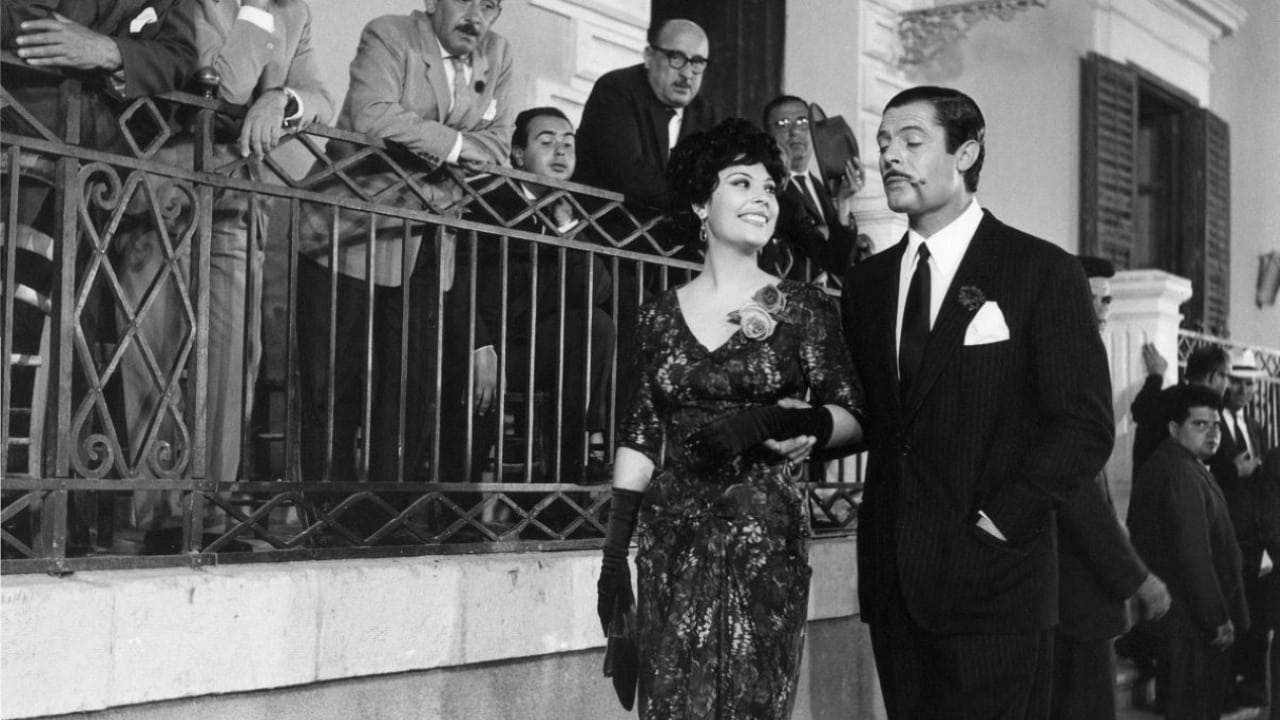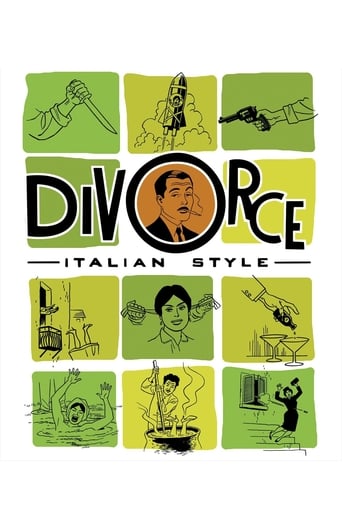

As a bizarre tribute to my mom on her 75th birthday and her 46-year-marriage to her only love, my father, who died in 2011, and to her subsequent loyalty and devotion, with stubborn refusal to even contemplate having another relationship, I decided to watch 'Divorce Italian Style'. It was hilarious and highly enjoyable. It certainly deserved its Oscar win for Best Screenplay, as well as its nominations that year both for Best Actor (Marcello Mastroianni) and Best Director (Pietro Germi).The latter tends to get thrown under the bus and ignored altogether when it comes to mentioning pivotal Italian directors of the period. Not so. Though this is thus far the only film of his I have seen, the guy--both in terms of script writing this comedy and behind the camera--is a sheer genius. Do yourself a favour and watch it today!
... View MoreAn Italian big shot with a nagging wife concocts ways to be rid of her so he can be free to lust after his cousin. Mastroinni, sporting a pencil-thin mustache, seems to be trying very hard to make it funny, but is let down by a witless script. Rocca, also sporting a pencil-thin mustache (no kidding), as well a uni-brow, plays the nagging wife. Sandrelli is the cousin, and nobody makes an issue of cousins having an affair (Oh those Italians!). Everybody overacts and the humor is forced and rather cartoony. Good comedies are marked by two traits - they are funny and they don't overstay their welcome. This one fails on both accounts.
... View MoreLet me begin by declaring that I liked "Divorce, Italian Style"...sort of. I come to both bury and praise this movie at the same time, if such a thing is possible.It's not a bad film, by any means. In fact, it possesses many of the greatest strengths of foreign cinema - it's got plenty of wit, bite, intelligence, and the kind of cold insight into human nature that is often lacking in glamorized Hollywood films. In short, it's well done.And yet, it annoyed me. Something about the enormously cynical plot - which involves an unhappily married man (Marcello Mastroianni) trying to break free from his clingy wife - bugged me. Perhaps I got just tired of Marcello's world-weary persona after a while; it initially amused me, then started to grate. It's tough to watch such a superficial weed of a character for a whole movie.And perhaps I also got a little tired of the wife, who is depicted as an endlessly cheerful weirdo with a hideous unibrow and a mustache. Cheerful, and fawning. Extremely fawning. In fact, the film contains innumerable close-ups of her fawning face. But here's the problem - how many shots of a fawning woman with a hideous unibrow does any normal viewer want to see? After a while, it just got too ugly for me to look at.Perhaps I'm being frivolous. But I'm trying to suggest, in my own clumsy way, that the movie was a little too grotesque for me. The characters were a little too bizarre, the shouting was a little too loud, and the satire narrowly missed the mark. I wanted to like it, really... but it ended up irritating me. Shame, really - but I'm sure that many Italian movie buffs will love it despite my grumblings.
... View MoreMarcello Mastroianni is a great actor but who does he want to fool with those little mustaches playing the part of a Sicilian? He doesn't make sense. He isn't credible. With this premise the movie is all downhill. Mastroianni overacts making his part furthermore less credible. All the actors overact and the movie becomes a mess. Pietro Germi lost control. If everyone was a little more serious this could have a been a great comedy.The director will make a sort of masterpiece with SIGNORE & SIGNORI (Ladies & Gentlemen) but 4 years will have to pass.The DVD I saw had images of bad quality. Being an Italian movie unfortunately it often happens.
... View More